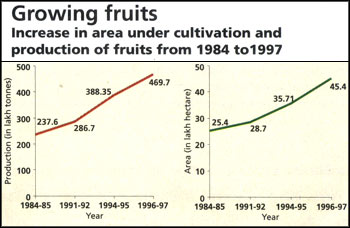While we all get ready for elections, fiscal rectitude will be a priority for the next government. The curtains have finally come down. The Budget has provided a clear indication of things to come. In a year when 11 states will go for elections and the sword of Damocles for the general elections hanging, a populist fiscal stance is only to be expected. Unfortunately, a populist Budget never fully appeases anyone. Those who get the sops want more and those who do not get them get more upset. This Budget attempts to target the benefits to sections of farmers and urban middle class and when the Pay Commission report is submitted, to the government employees. It is yet to be seen whether the largesse will translate into votes, but surely, these measures will impact for several more years. The Economic Survey was candid about the need for austerity in the prevailing environment, but the Budget does not seem to care. The Budget for 2008-09 has been formulated in the background of moderating growth, a difficult international environment, unimpressive agricultural performance, rising world oil prices, surging capital flows and continued infrastructure bottlenecks. Austere fiscal policy was required not only to provide a counter-cyclical stance but also to keep interest rates low and manage capital inflows better. Acceleration in growth required significant augmenting infrastructure investment. Rationalising subsidies and increase in investment were necessary to accelerate the agricultural growth rate to 4 per cent. It was also hoped that the finance minister would initiate reforms in the excise tax regime to move towards a goods and services tax (GST). To be fair, higher allocations have been made in the Budget for some of the infrastructure sectors though capital expenditure as a ratio of GDP shows a decline. The energy sector's allocation is 30 per cent higher, the roads and transport sector's 22 per cent higher, and communication sector's 32 per cent higher. There are substantially higher allocations to the six components of the Bharat Nirman Programme, which are in the nature of improving connectivity and rural infrastructure. The total plan expenditure in the Union Budget shows an increase of 17.3 per cent over the revised estimate for 2007-08, though this is just about one-half of the level in 2004-05. However, plan capital expenditure shows an increase of just 5.3 per cent, and at 0.6 per cent of GDP this is worrisome. Thus, there has been a significant increase in plan expenditure, but not for creating infrastructure but for various schemes, most of which are in the states' domain. The funds for these programmes are transferred directly to the third level of government or other implementing agencies because the central government wants to claim ownership and clearly, in many places accountability and delivery systems have yet to be put in place. Economists judge the Budget on the basis of its likely macroeconomic impact and policy signals it gives. In the context of surge in capital flows, it was necessary to keep the interest rates low and allow the RBI to undertake market stabilisation to ensure relatively stable exchange rates at least in the short term. That called for containing the fiscal deficit at even lower than the target set under the FRBM Act. For 2007-08, thanks to the buoyant revenues from direct taxes, it was possible to overreach the target, though some expenditure liabilities, particularly on subsidies, have not been fully taken account of. The revenue deficit for 2008-09 relative to GDP is estimated at 1 per cent and the fiscal deficit at 2.5 per cent. Indeed, although phasing out the revenue deficit is mandated in the FRBM Act, it was unrealistic to expect reduction in the deficit by 1.5 percentage points in one year. Budgets are like fashion girls on the ramp; what they hide raises more curiosity than what they reveal. However, most observers have been quick to point out that the fiscal deficit is clearly an underestimate for it does not take account of some important liabilities. First, the Budget estimates do not include the impact of implementing the Sixth Pay Commission. It may be recalled that it was the pay revision in 1997-98 that led to an era of high fiscal imbalances and this alone could add to the fiscal deficit by about half a percentage point of GDP. The second important omission is provision for loan waiver. This is estimated to cost Rs 60,000 crore and or a little over 1 per cent of GDP. That is not all. Despite claims to transparency, the subsidy numbers clearly look under-budgeted. In the case of fertilisers, for example, the Budget estimate for 2008-09 at Rs 30,986 crore is close to the revised estimate for 2007-08 (Rs 30,501 crore). Of course, this does not take account of the Rs 7,500 crore bonds given to fertiliser companies. That is not all. The subsidy accruing to fertiliser companies based on the estimated sale of fertiliser would not be less than Rs 60,000 crore in 2007-08 and to that extent the deficit numbers for 2007-08 are suspect. This is the problem with a Budget prepared on the basis of cash and not accrual accounting. Finally, it is not clear how the finance minister will find an additional Rs 10,000 crore for Gross Budgetary Support for the plan when revenues are estimated to grow at 17.5 per cent and direct taxes at close to 20 per cent even after taking into account the increase in the exemption limit in personal income tax and reduction in excise duties. By this reckoning, the fiscal deficit and off budget liabilities should at least be higher by another 2 per cent of GDP. On changes in tax policy, reduction in the CENVAT rate to 14 per cent, increase in the threshold for service tax and reduction in the Central Sales Tax would help in eventually introducing GST. But the measures stop there. This was the opportunity to extend the base of service tax to all services and universalise input tax credit to convert the CENVAT into a manufacturing stage GST. The tinkering in excise rates has continued and this does not make sense. The policy makers are still to understand that crowding the tax policy with too many objectives only adds to administrative complexity and creates pressure groups. On the whole, difficult days are ahead and while we all get ready for elections, fiscal rectitude will be a priority for the next government, whoever comes to power!
















